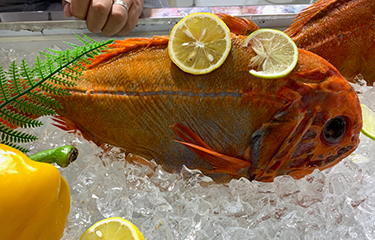Australia’s orange roughy fishery has been recommended to be certified sustainable to Marine Stewardship Council (MSC) certification guidelines.
According to the U.S.-based MRAG Americas Inc.’s 226 page report and determination, the fishery is certifiable to the standard and can be given sustainability status.
“Following client, peer, and public review, and review and decision by a qualified individual within MRAG Americas, we have determined that this fishery should be certified as sustainable against the MSC fishery standard,” the report stated.
The orange roughy is a large deep-sea fish with an extraordinary lifespan, capable of reaching 200 years of age or older. Its longevity also means it is vulnerable to overfishing, because it is slow-growing and takes time to mature - it doesn't reproduce until it is more than 25 years old.
Since the stock was said to be first discovered in the 1970s, the population has depleted since then as a result of commercial fishing. In 2008, the Australian orange roughy fishery biomass fell to 10 percent of unfished levels. And 13 years ago, the fish on the list of Australia’s threatened species.
As a result, the recommendation has not been well-received by conservation groups, Australian Broadcasting Corporation (ABC) reported. The report itself indicated the Australian Marine Conservation Society and conservation group WWF objected to the reclassification.
But MRAG Americas Inc. said conservation plans, a rebuilding strategy, and harvest controls in place since 2007 have allowed the stocks to rebuild.
“Because of the long life history of this species (individuals are at least 25 years old before they are recruited to the fishable stock), it is likely that high catches during the 1980s and 1990s have just started to affect recruitment and impact is likely to occur in the next decade,” the report states. “However, there is some evidence to show that the fecundity of orange roughy in the eastern zone is significantly higher than it was historically.”
The report said harvest controls are now in place to ensure that overfishing is unlikely to occur again in the future.
Photo courtesy of Alvin Loy Gin Hui/Shutterstock







